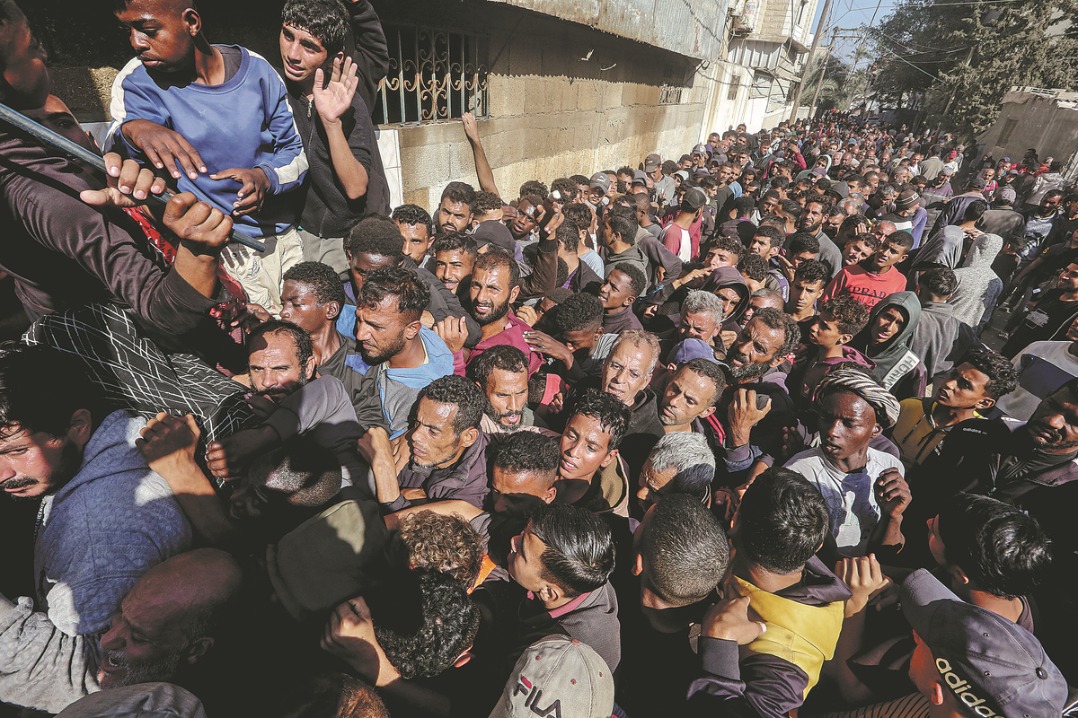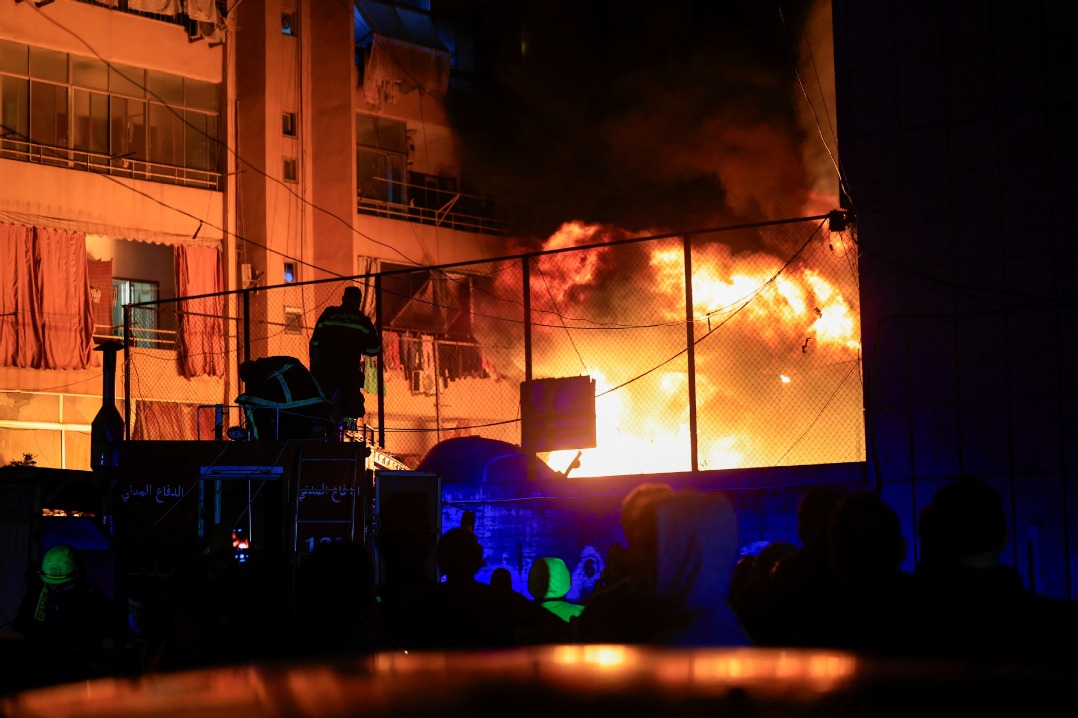)
How Ismail Haniyeh’s killing may weaken Hamas but not its ideology
FirstpostThe killing is a setback for Hamas, but its ideology will only get strengthened if violence continues Haniyeh was born in 1962 in the Shati refugee camp north of Gaza City to Palestinian parents who, in 1948, had been displaced from their home in Ashkelon, now in Israel. “The residence of Ismail Haniyeh, Head of the political office of Hamas Islamic Resistance, was hit in Tehran,” as per a statement by the Islamic Revolutionary Guard Corps’ Sepah news website. “You have to be steadfast, and you have to be ready for revenge.” Haniyeh was appointed Palestinian Prime Minister in 2006 by President Mahmoud Abbas after Hamas won the most seats in national elections, but was dismissed a year later after the group ousted Abbas’ Fatah party from the Gaza Strip in a week of deadly violence. But Haniyeh, noting that he’d already lost dozens of family members in the war, had said, “We shall not give in, no matter the sacrifices.” Other Palestinian Leaders The other important Hamas leaders include Yahya Sinwar, the leader of the Hamas movement within the Gaza Strip, who was born in 1962. It’s an escalation by and that’s going to have significant ramifications.” On the other hand, Lord Peter Ricketts, the UK’s former National Security Adviser, has stated that Haniyeh’s assassination is “a very powerful demonstration of Israel’s ability to reach out right across the region.” He said it gives Israel the “political room to begin now to wind down the operation in Gaza because he can now say he has really delivered a major blow against Haniyeh’s leadership.” But Ricketts also says it “remains a very dangerous time in the Middle East”, as Hamas is now unlikely to want to settle in ceasefire talks.
History of this topic
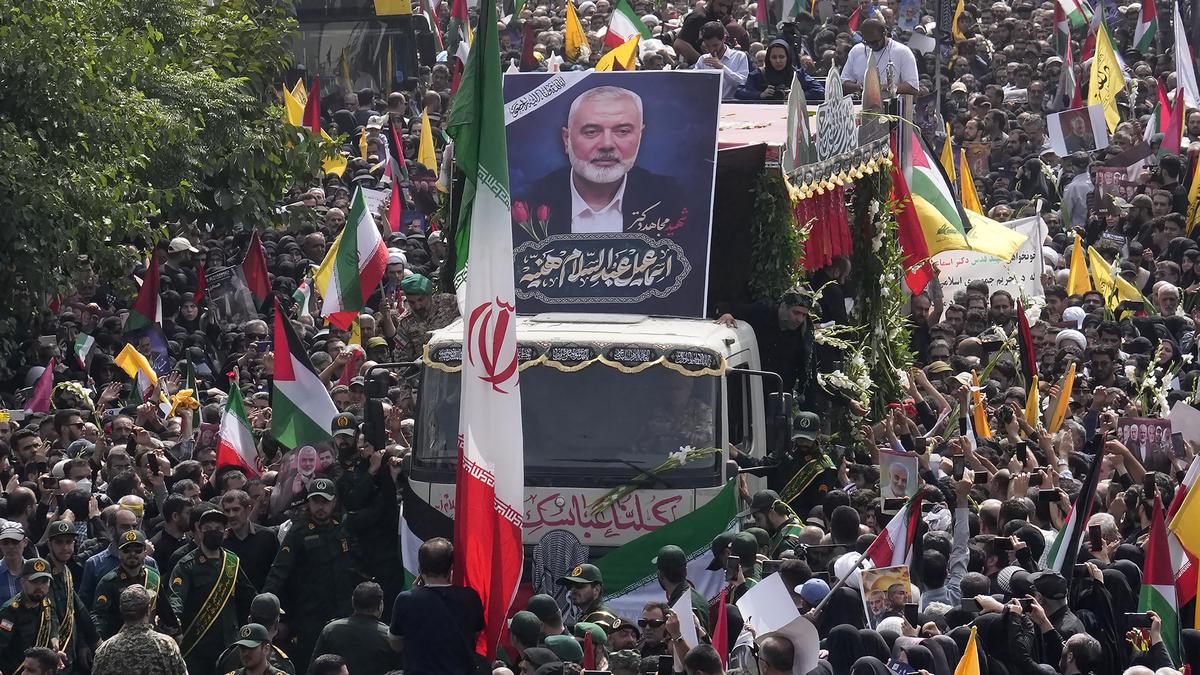
Israeli Defense Minister claims responsibility for first time for Hamas leader Haniyeh’s assassination
The Hindu
Israel acknowledges assassinating former Hamas chief Ismail Haniyeh in Iran
Hindustan Times
Brutal Killing: Graphic Details of Hamas Leader's Death Revealed
Hindustan Times)
Post Haniyeh killing, Israel faces Hamas 2.0 in a grinding war of attrition
Firstpost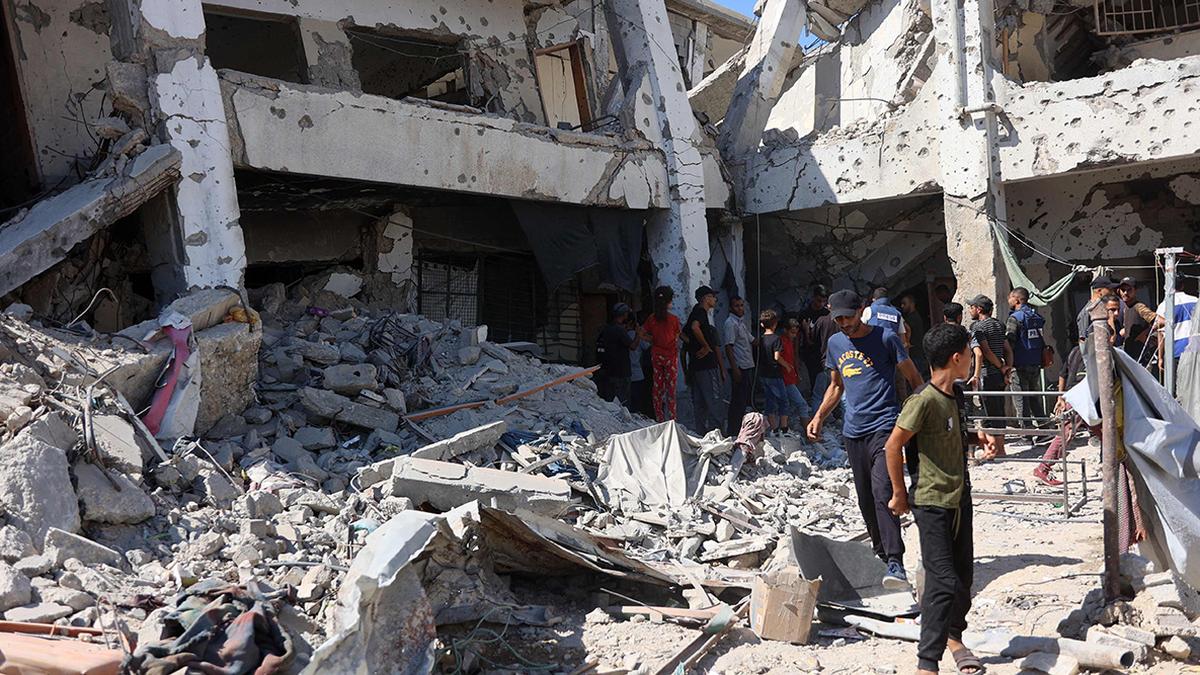
Israeli military orders another mass evacuation in southern Gaza
The Hindu
Iran says short-range projectile killed Hamas political chief Ismail Haniyeh
The Independent
Hamas begins consultations to choose Ismail Haniyeh’s successor
Al Jazeera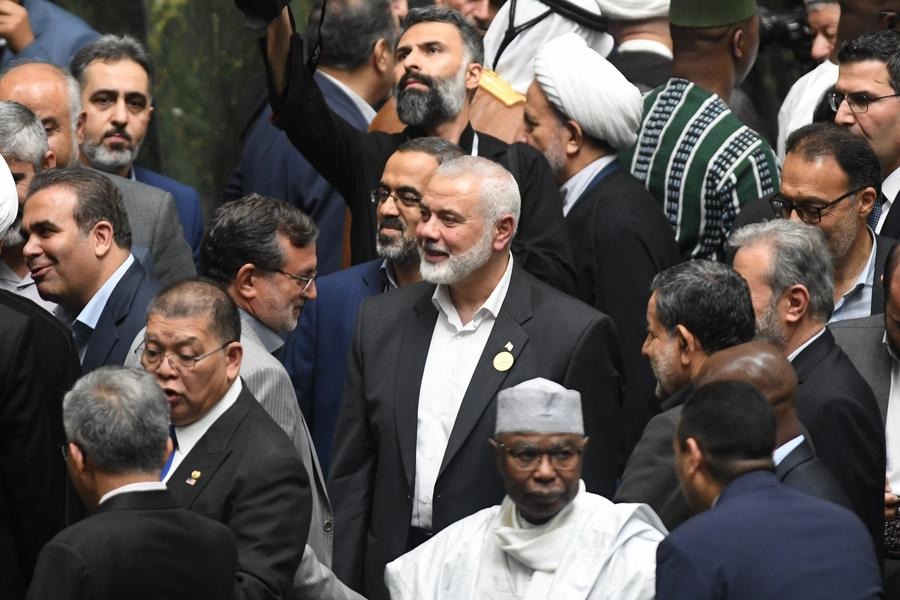
Iran says Hamas chief killed by 'short-range projectile'
China Daily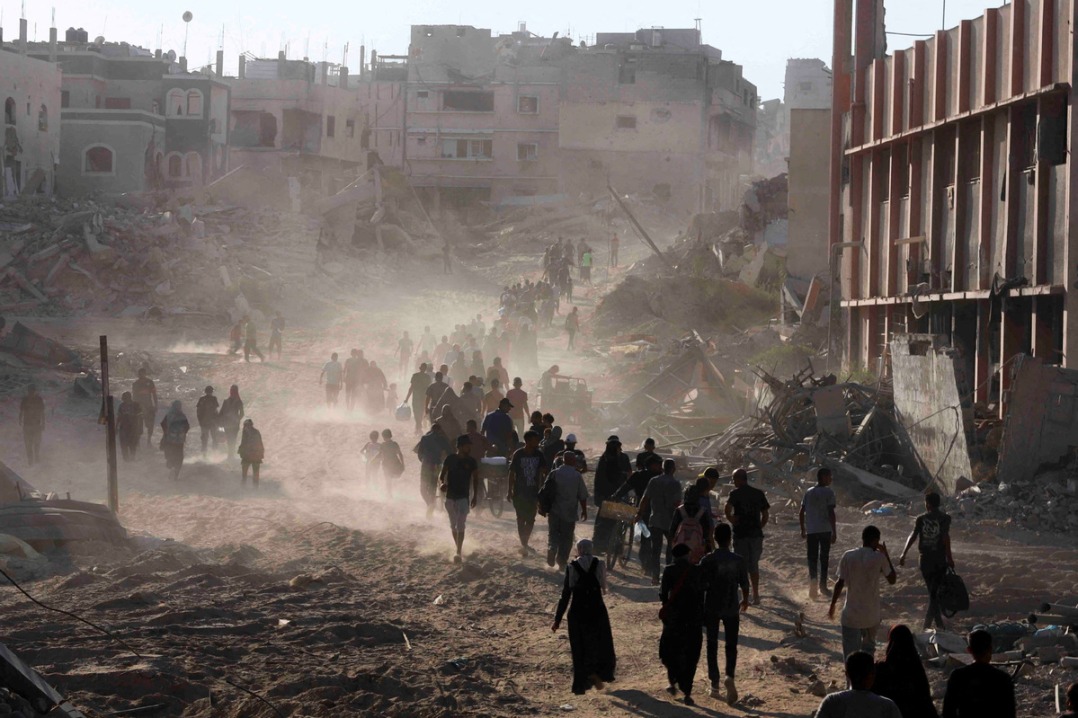
Middle East turmoil calls for concerted efforts: China Daily editorial
China Daily
Iran’s IRGC Says Short-Range Projectile Killed Hamas’ Ismail Haniyeh
News 18
West Asia ceasefire prospects ended with Haniyeh’s killing: Former envoy
New Indian Express
Haniyeh killed by ‘short-range projectile’ fired from outside home: IRGC
Al Jazeera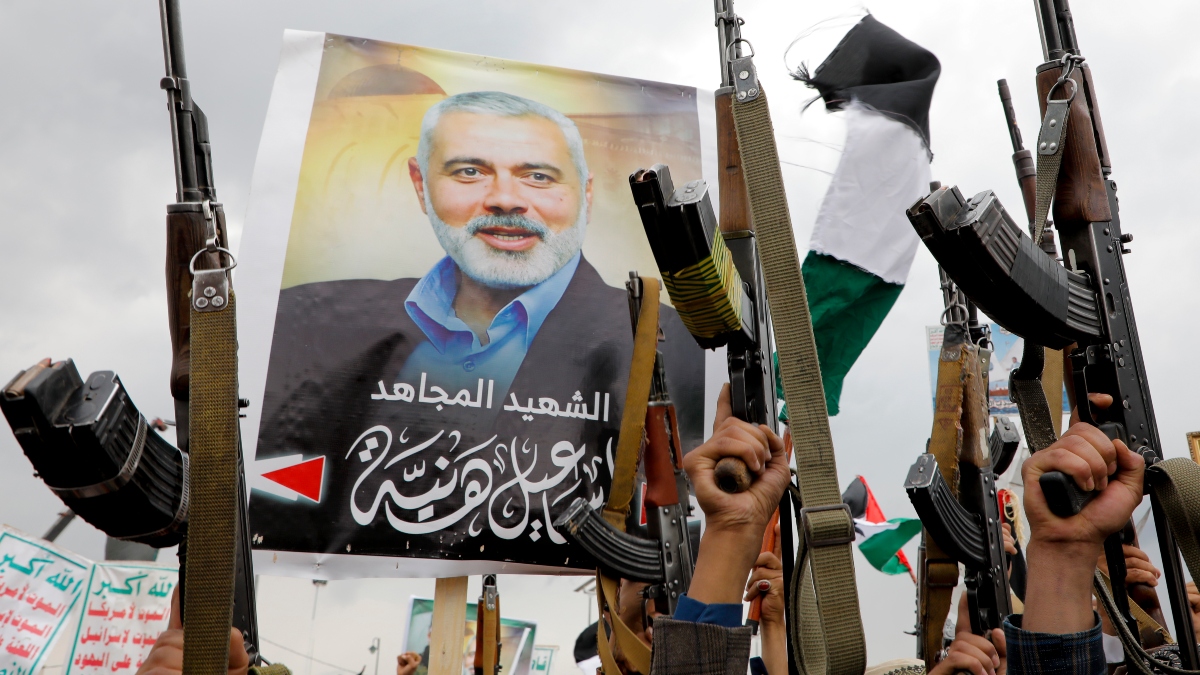
Hamas chief Haniyeh was killed by short-range projectile: Iran amid conflicting reports on method of killing
India TV News
Iran Revolutionary Guards say 'short-range projectile' killed Hamas chief
New Indian Express)
As Iran vows to punish Israel, slain Hamas chief Ismail Haniyeh buried in Qatar
FirstpostMourners bury Hamas chief Haniyeh in Qatar as more escalation looms over the Middle East
Associated Press)
Hamas ‘beehive’ leadership ensures survival despite Haniyeh’s killing
Firstpost
Mourners bury Hamas chief Haniyeh in Qatar as more escalation looms over the Middle East
LA Times
Hamas chief Ismail Haniyeh buried in Qatar
Al Jazeera
Thousands mourn Hamas leader Ismail Haniyeh at funeral prayer
Al Jazeera
‘Great for Netanyahu’: Will Haniyeh killing help Israeli PM politically?
Al Jazeera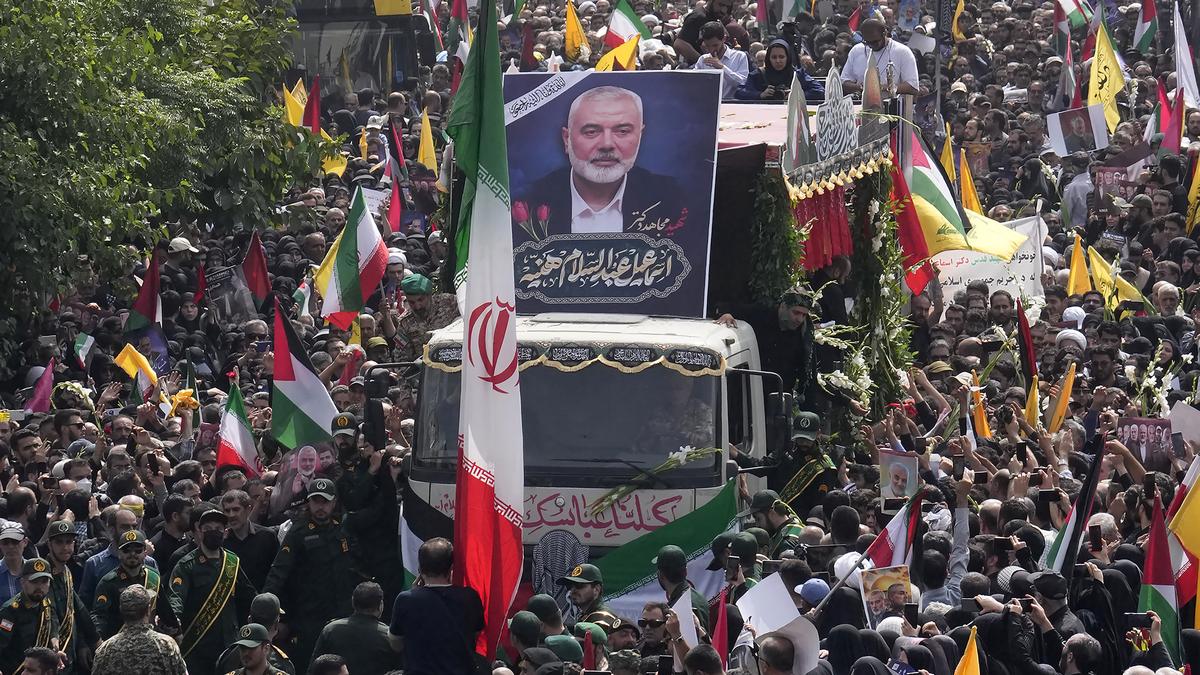
Calls for revenge echo at Haniyeh’s funeral; Tehran vows ‘punishment’
The HinduHamas leader’s assassination sheds light on a long history of alleged Israeli attacks in Iran
Associated Press
Watch: At Ismail Haniyeh's Funeral In Iran, Khamenei Vows Revenge Against Israel
News 18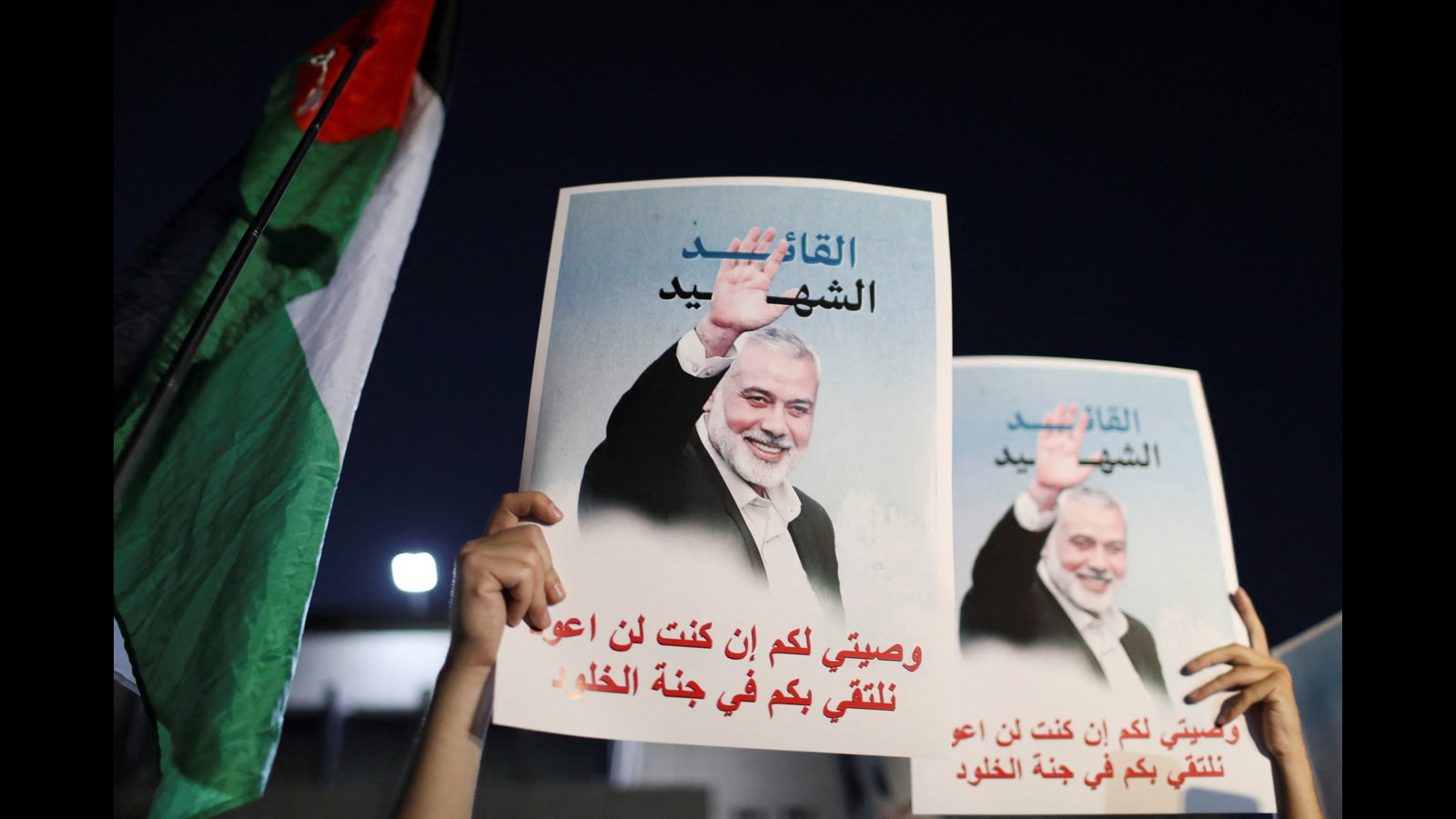
West Asia on the brink, West needs to step in
Hindustan Times
Iran held funeral processions this morning for Hamas' terrorist leader
Daily MailIsrael-Hamas war latest: A cease-fire is key to ending the region’s cycle of violence, Blinken says
Associated Press
Prayers and flowers... for a terrorist leader: Iran's Ayatollah prays over Hamas chief Ismail Haniyeh's coffin after vowing 'revenge' for 'Israeli' assassination - as US calls on 'all parties' to 'avo
Daily Mail
Hamas chief killing: Iran’s Ayatollah Khamenei orders ‘direct attack’ on Israel in retaliation
Live Mint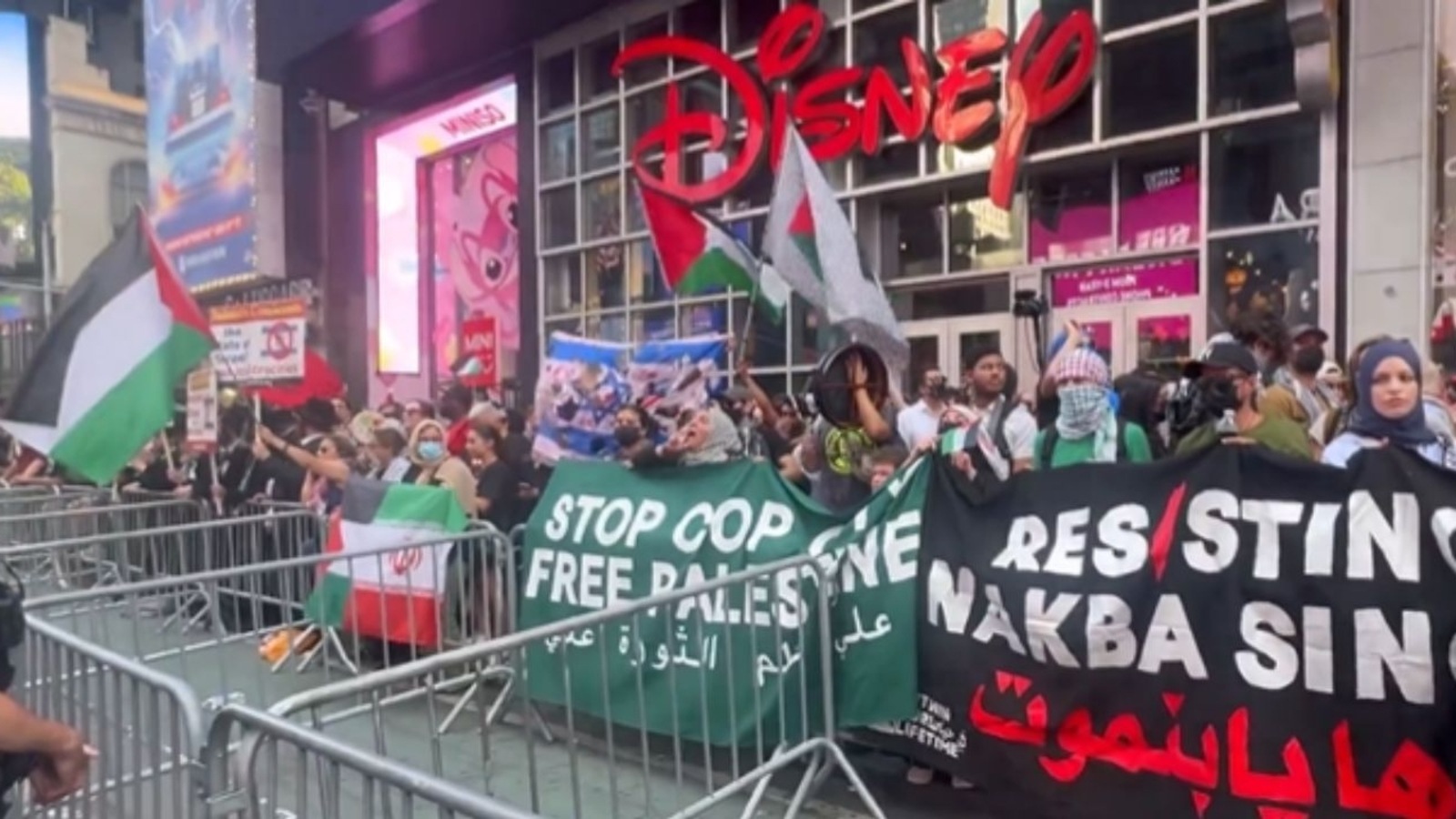
Anti-Israel protesters hold up portrait of Ismail Haniyeh, wave pro-terror flag in Times Square: Watch
Hindustan Times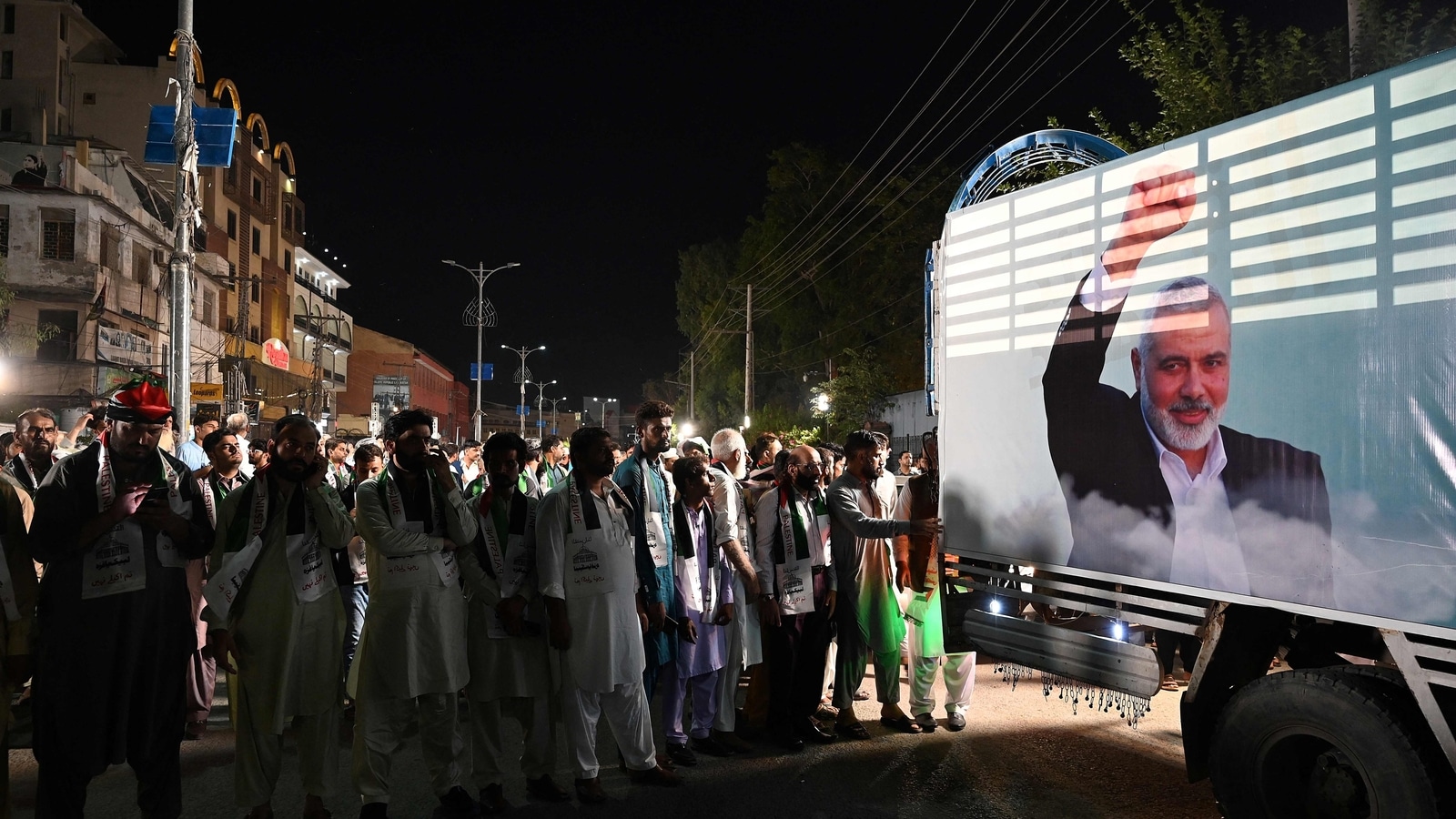
Hamas chief killing: Iran orders direct attack on Israel; US speaks on ‘right to defend’
Hindustan Times
Israel’s assassinations of Hamas and Hezbollah leaders will backfire
Al Jazeera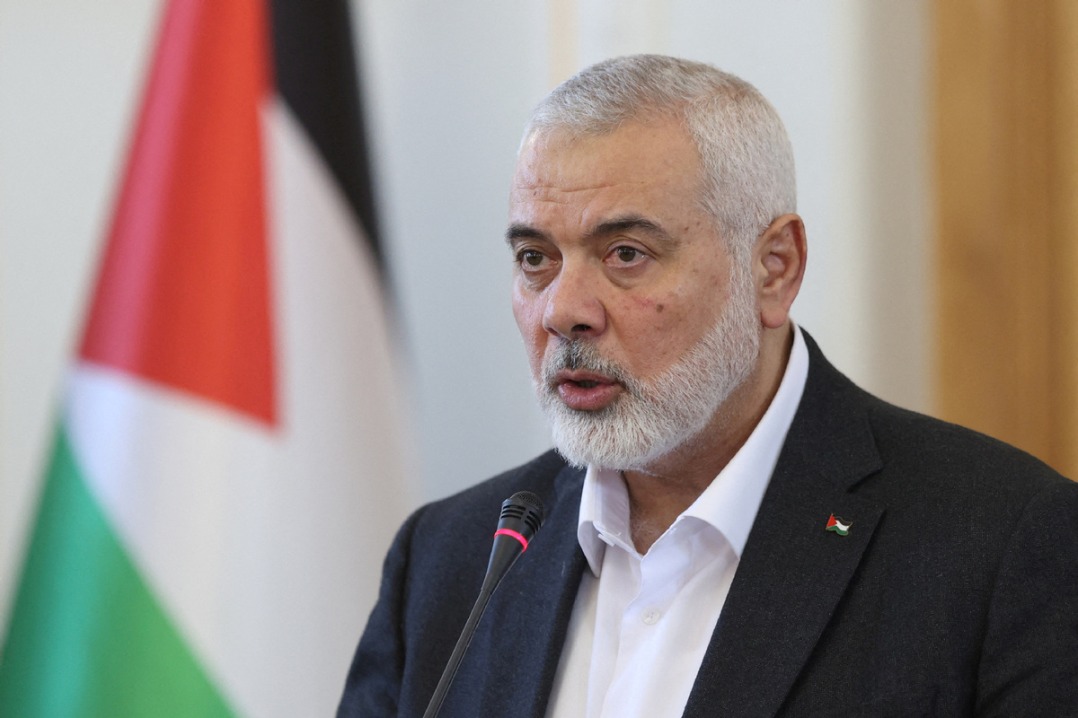
Will Hamas retaliate after Haniyeh assassination?
China Daily
What the Ismail Haniyeh assassination means for Gaza ceasefire talks
Al Jazeera
Hamas says its leader killed in Israeli strike
China Daily
Thousands mourn Hamas’s Ismail Haniyeh at funeral procession in Iran
Al Jazeera
Thousands mourn Hamas leader Haniyeh in Iran amid calls for revenge
Al Jazeera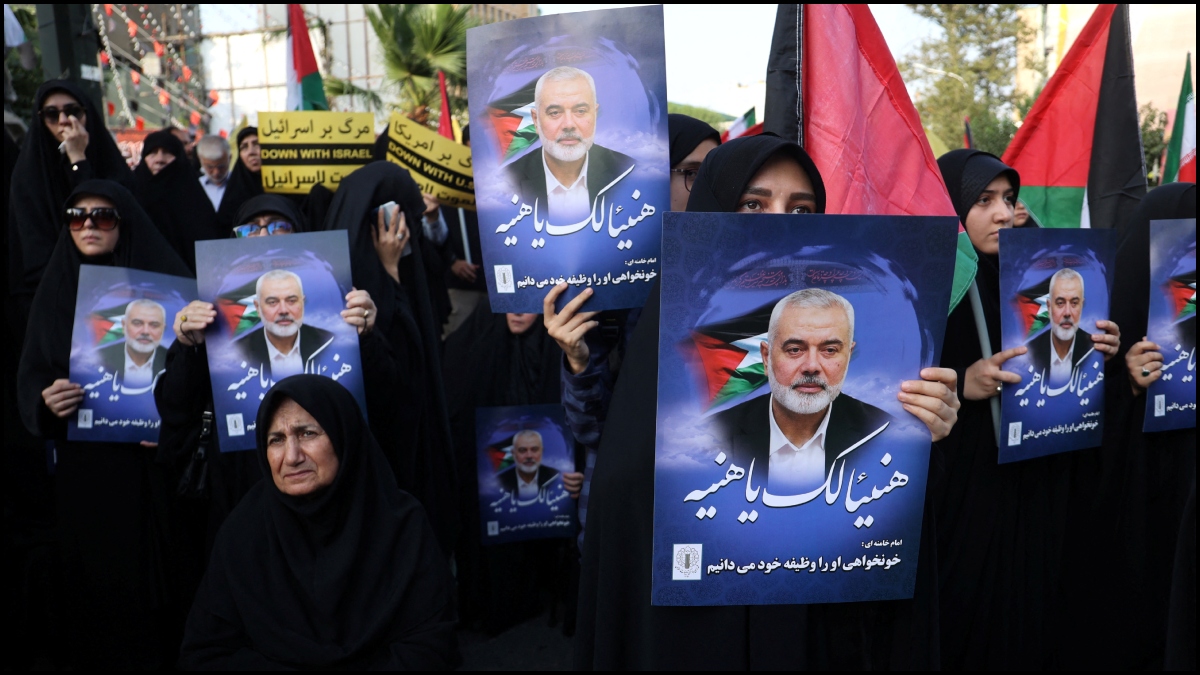
Iran's Supreme Leader orders direct attack on Israel after Ismail Haniyeh's assassination: Report
India TV NewsDetails on Hamas leader Ismail Haniyeh's assassination are scarce. What could happen next is even less clear
ABC
Iran’s leader authorizes strikes on Israel after Ismail Haniyeh assassination, reports say
The Independent
Watch: Mourners gather for funeral prayer of Hamas leader Ismali Haniyeh in Turkey
The Independent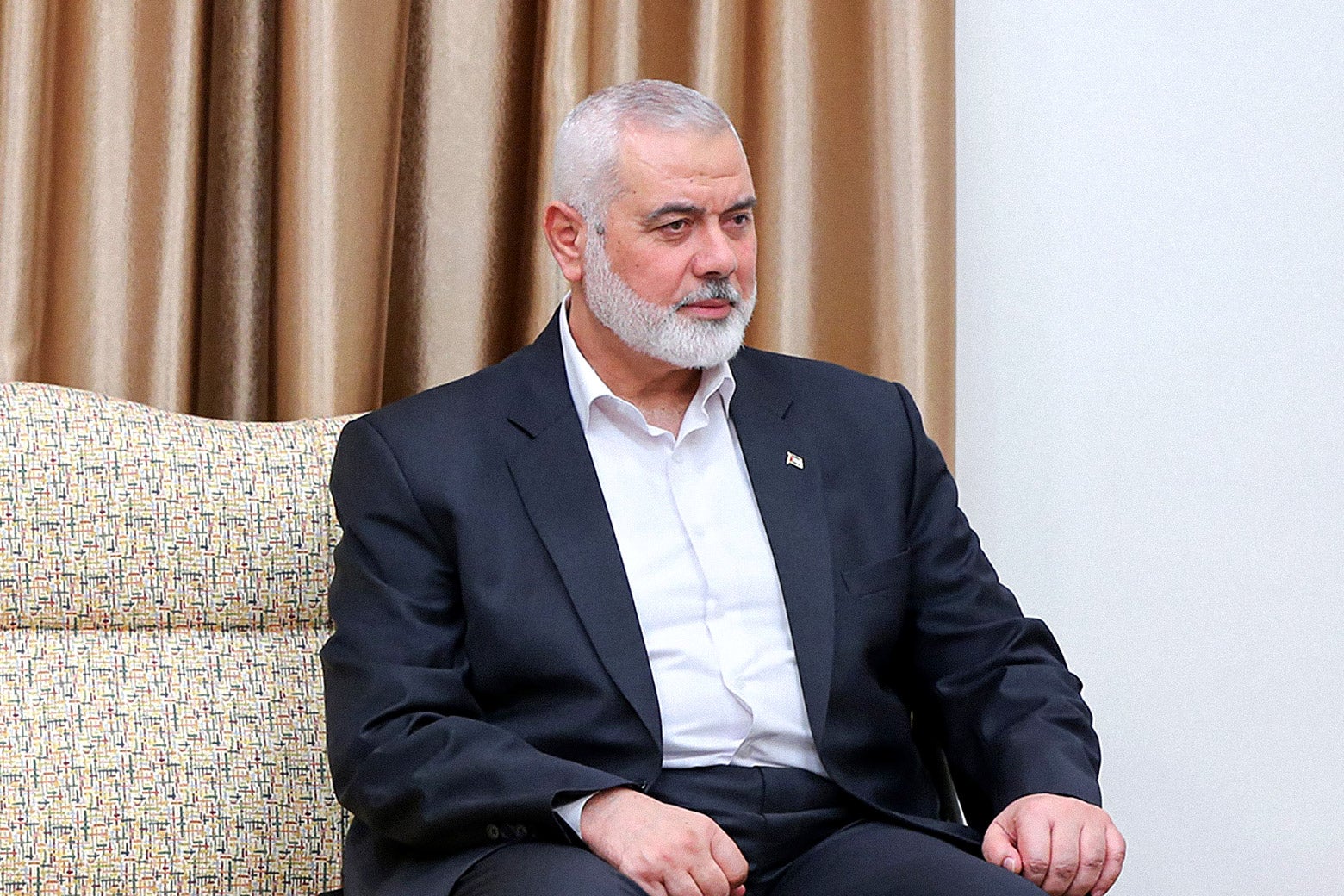
Hamas leader killed in Iran: What does it mean for war in the region?
Slate
Iran vows revenge after Hamas leader Ismail Haniyeh killed in Tehran
The Independent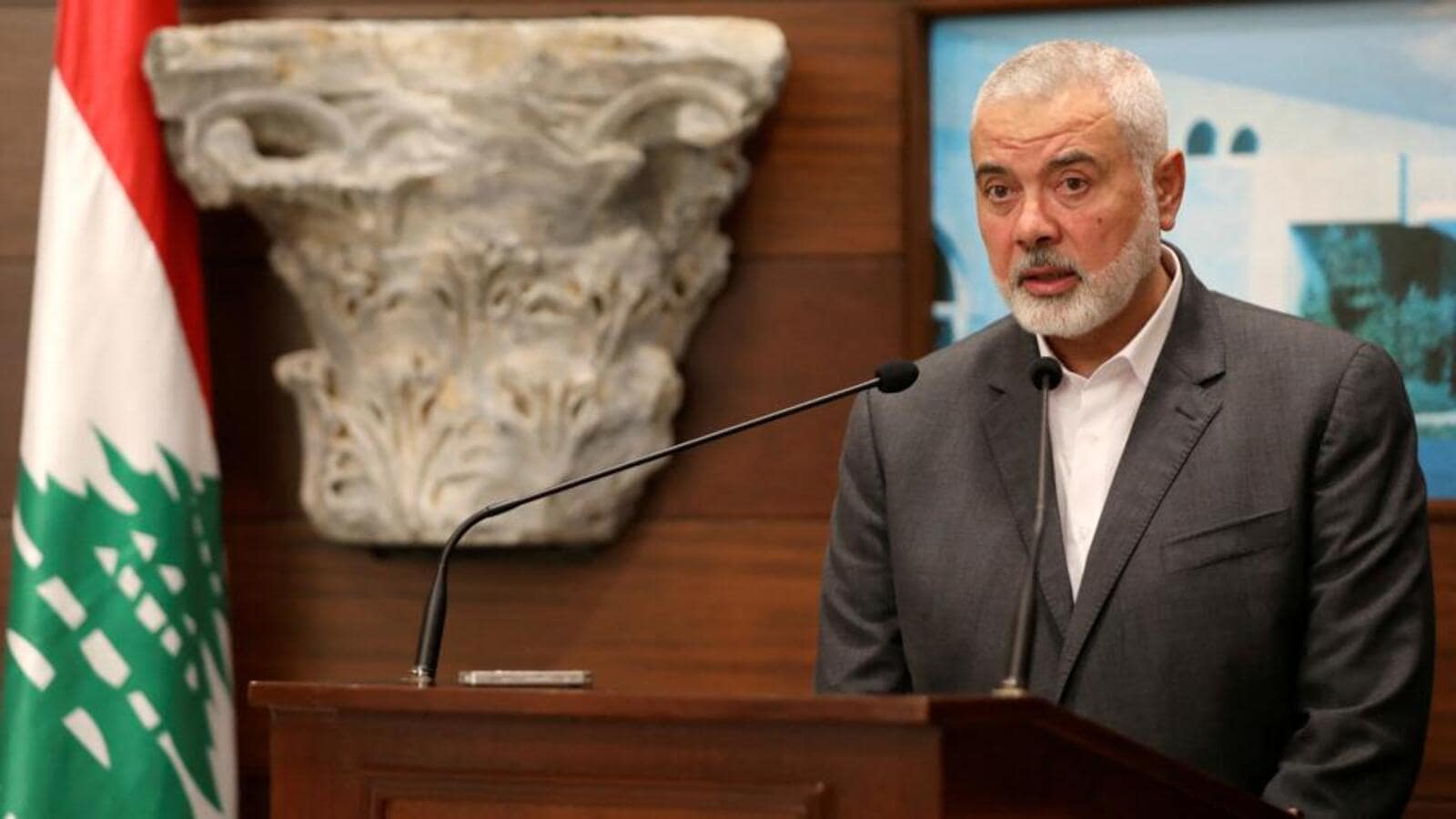
Hamas leader’s assassination in Tehran an embarrassing security lapse for Iran
Hindustan Times
Iran vows 'revenge' after the killing of Hamas leader Haniyeh
Daily MailThe war in Gaza might complicate Haniyeh’s replacement. Here are the possible contenders
Associated Press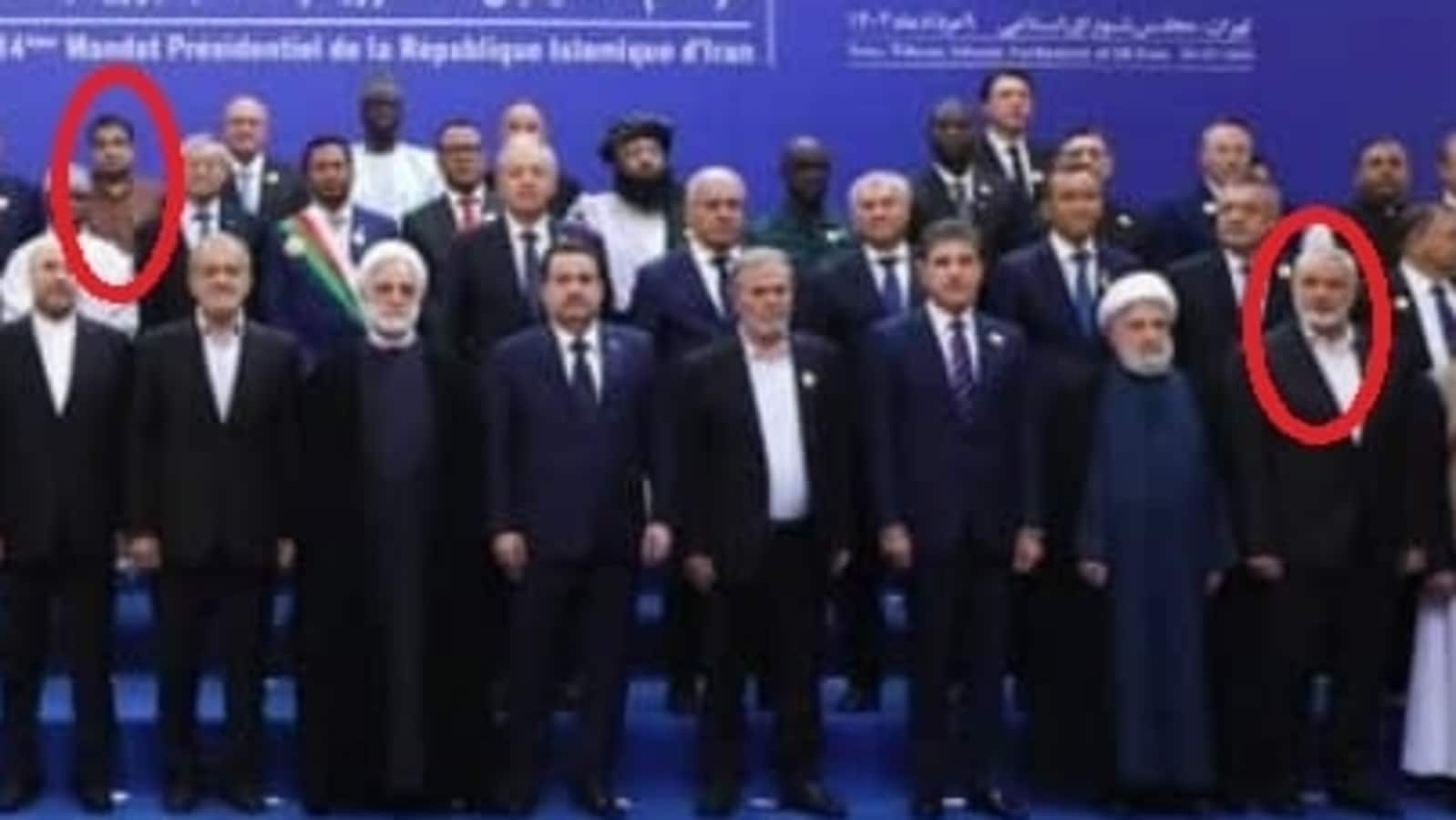
Hamas chief Ismail Haniyeh, killed in Iran, shared stage with Nitin Gadkari, others yesterday
Hindustan Times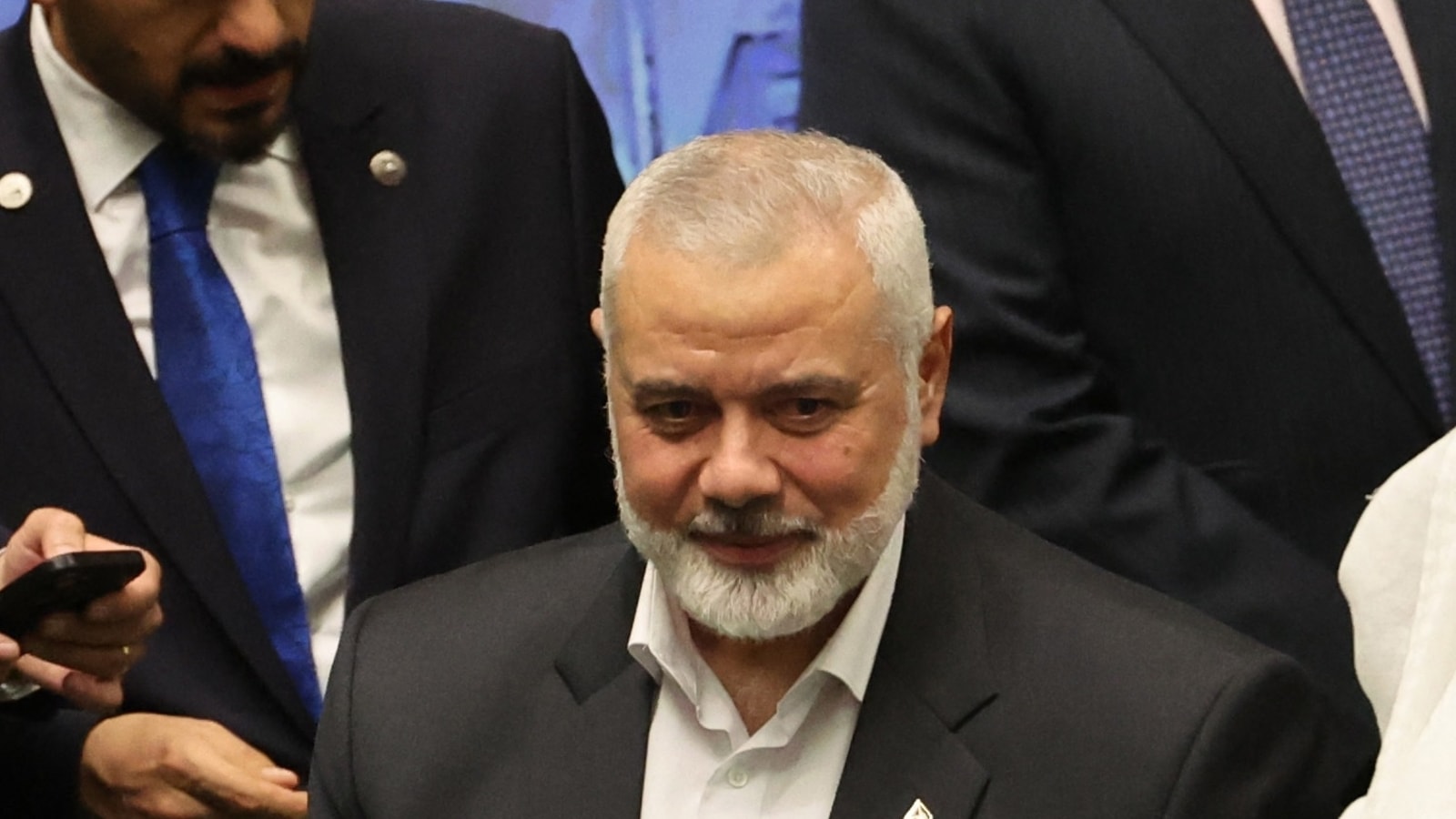
Ismail Haniyeh family: Hamas chief lost 3 of 13 children to Israeli airstrikes in April
Hindustan Times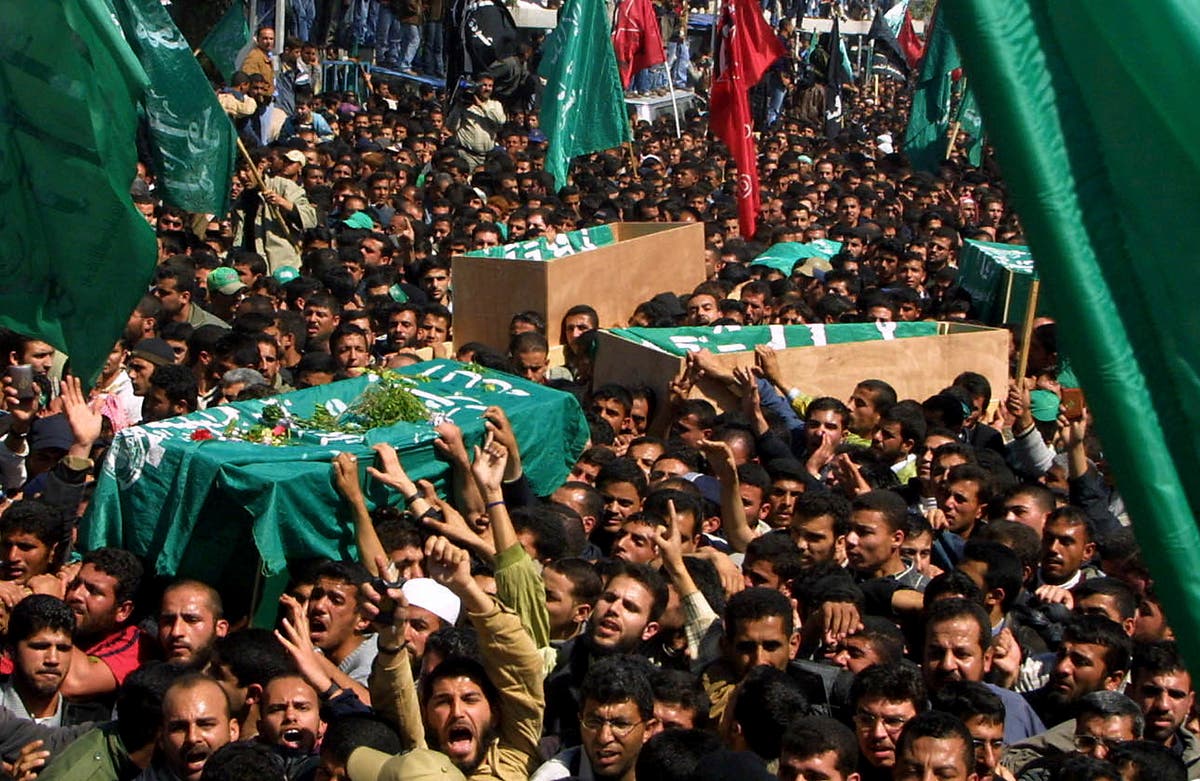
Israel has a long history of targeted killings. Here's a look at some of them
The IndependentDiscover Related

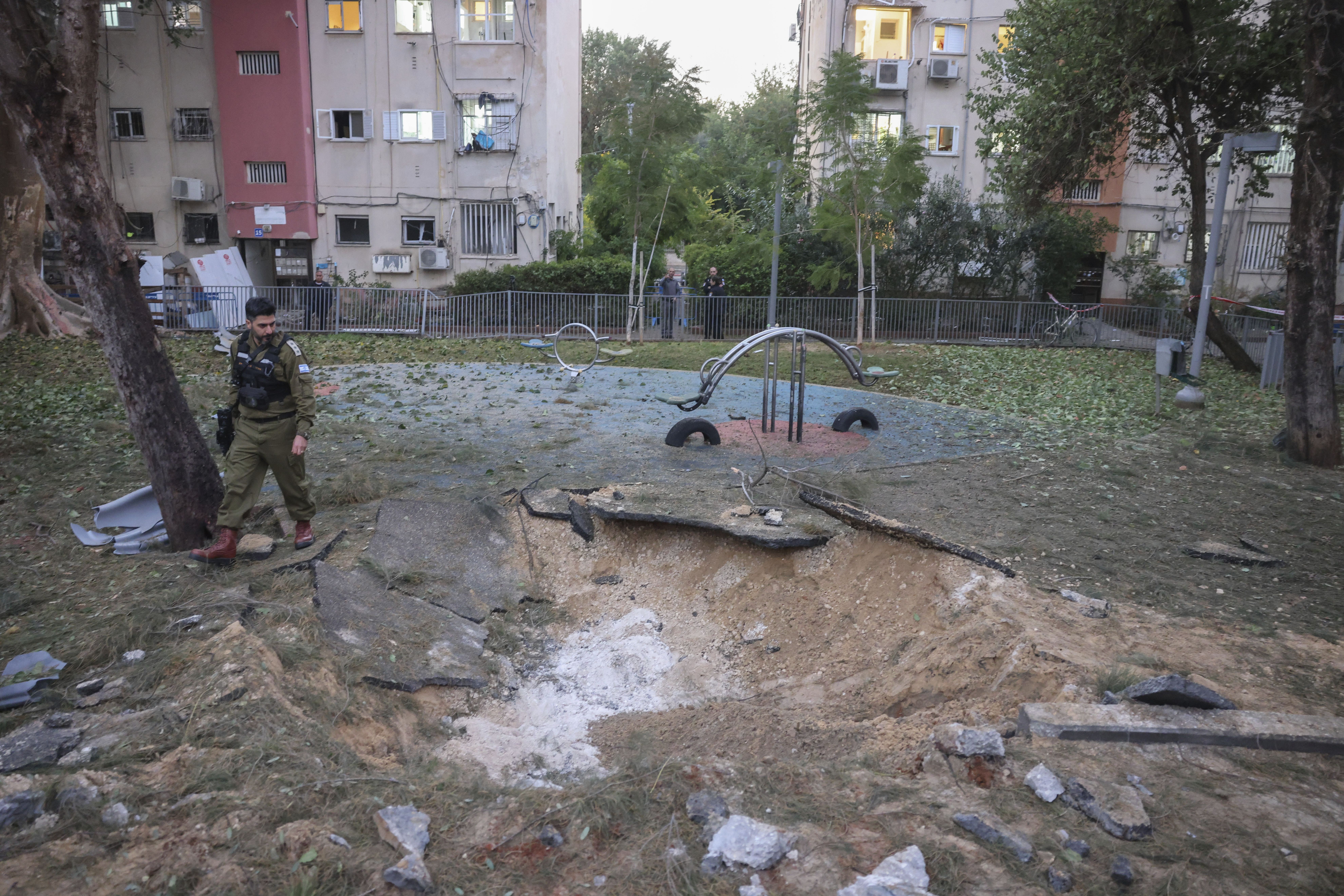



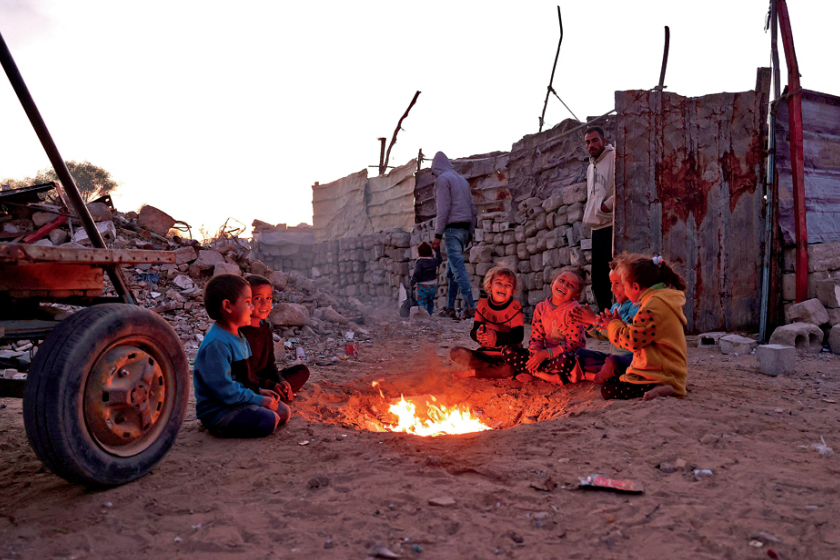

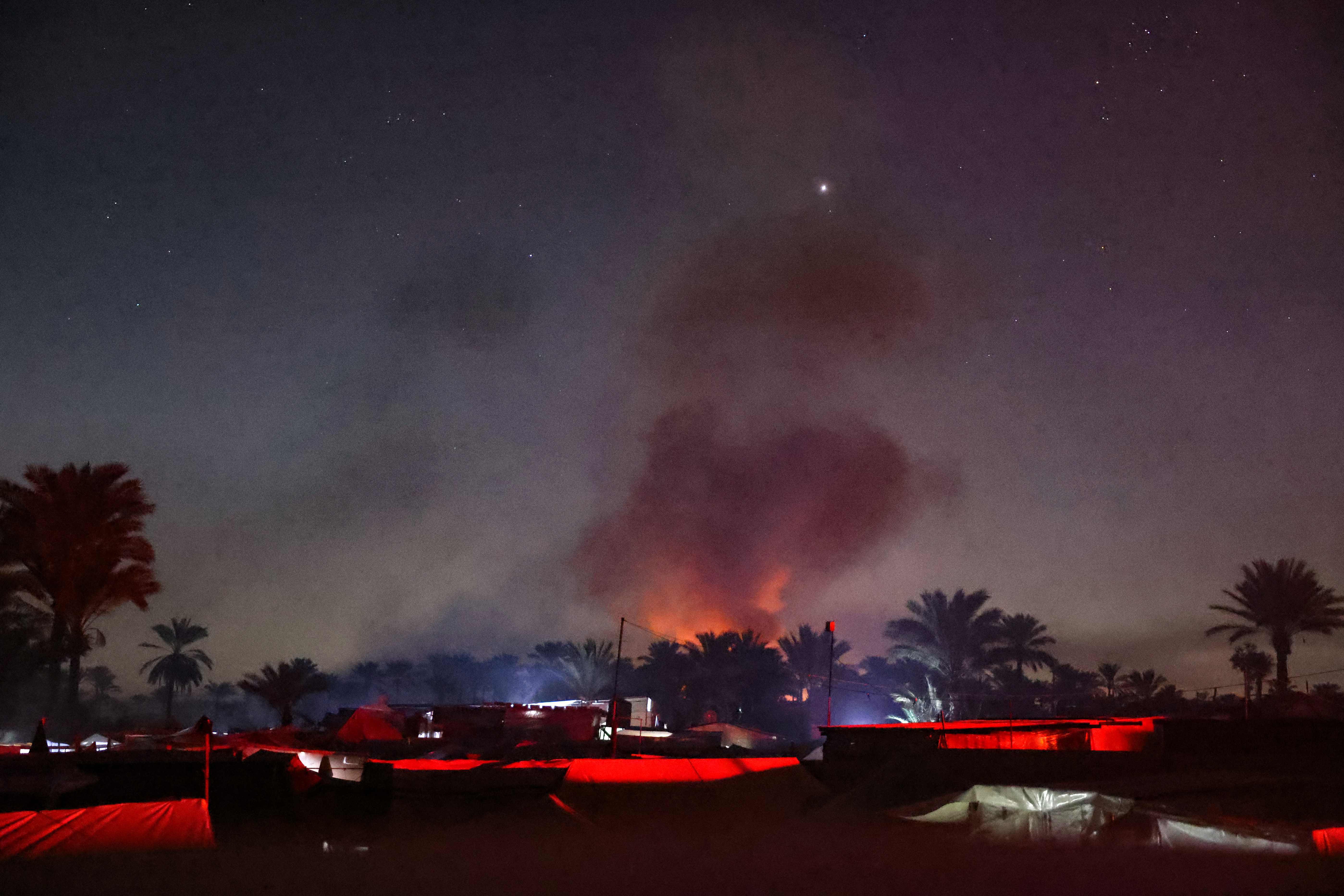


















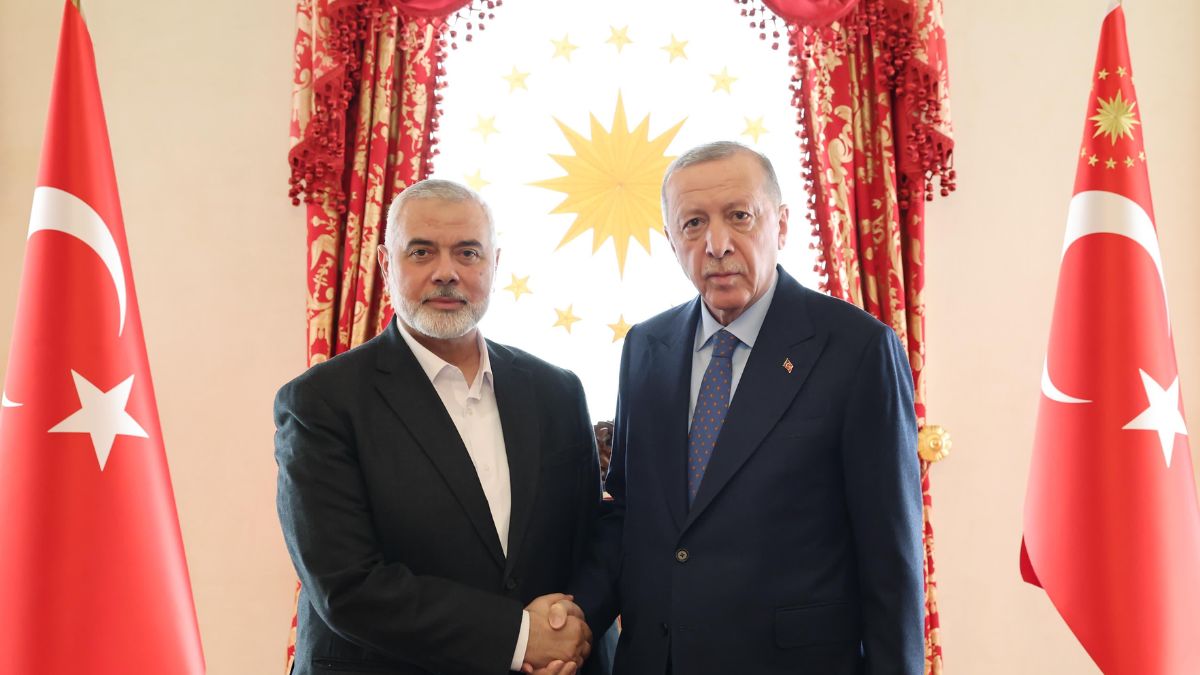)

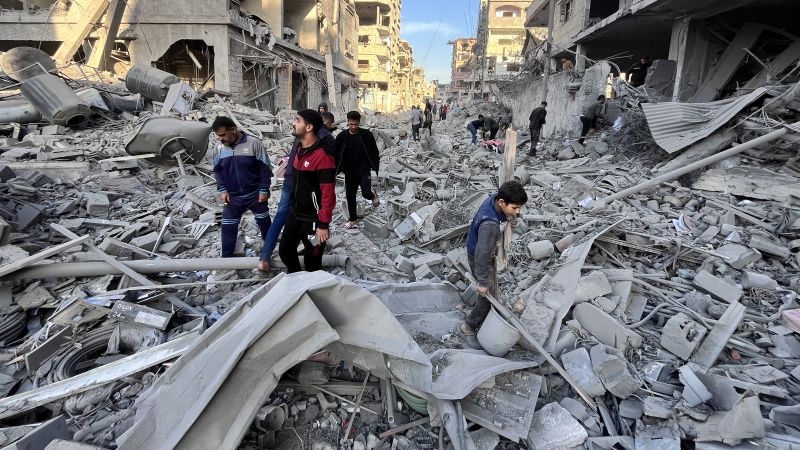
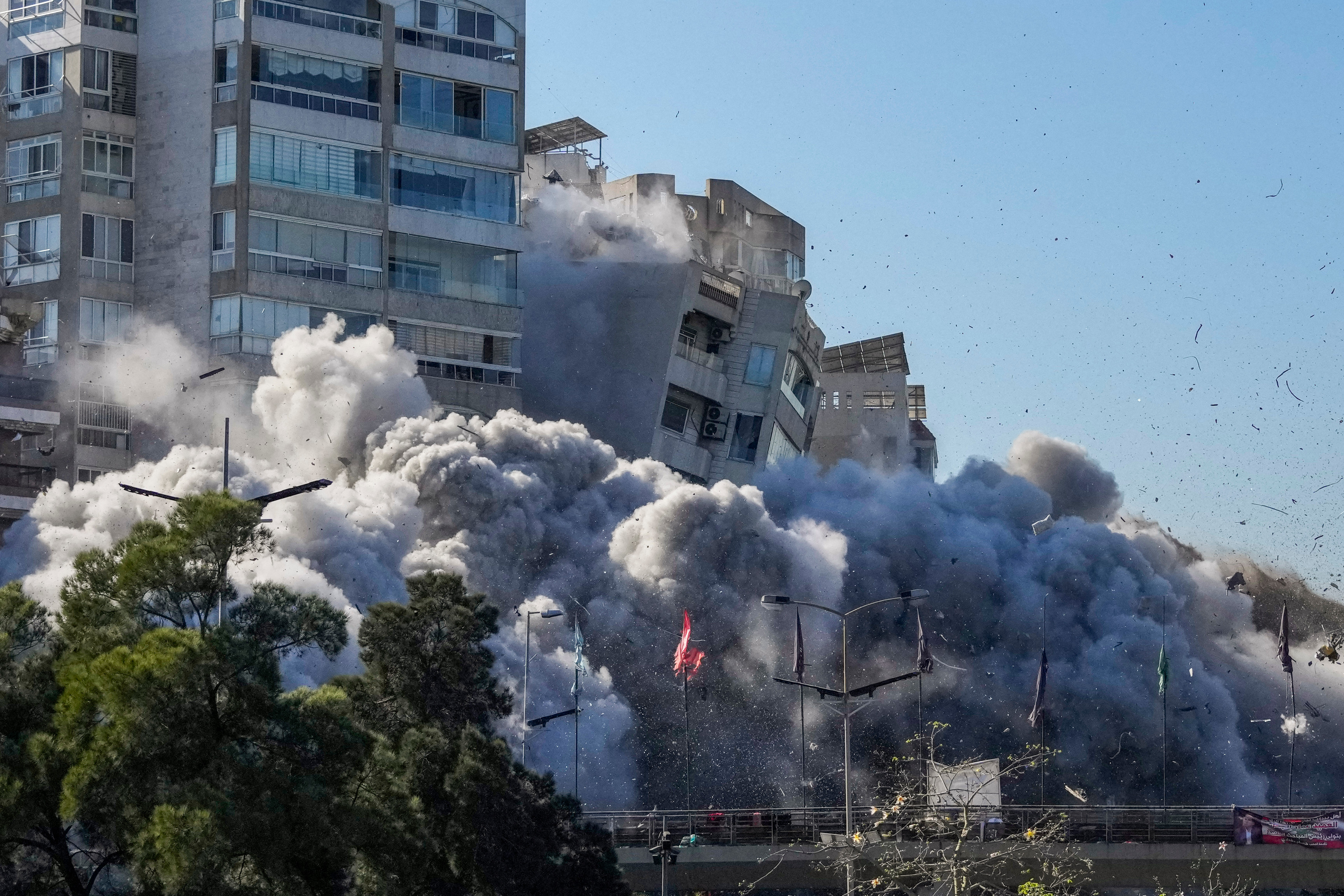





)

)
